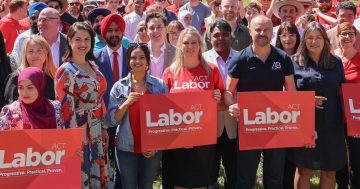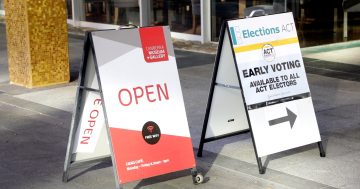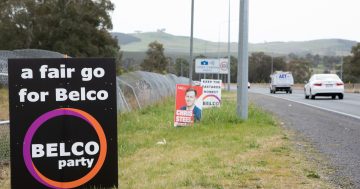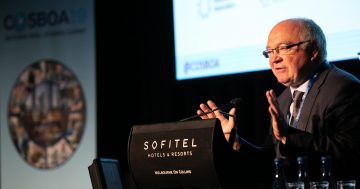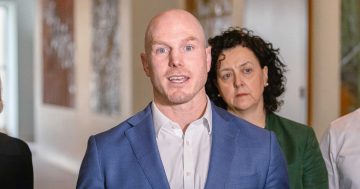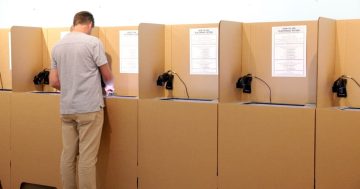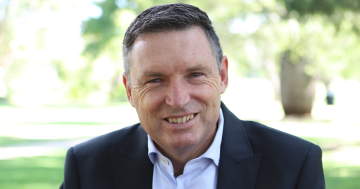
Recently I was invited to give my two cents on the 2016 ACT election and to offer suggestions to a parliamentary committee on how to improve future polls. Last year I ran as an independent – gokimbo2016.com.au – so my assessment and recommendations are geared towards giving indies and micro parties a fighting chance. As it stands, they have next to none.
To promote the independent cause is to promote diversity and democracy in the ACT, the only jurisdiction in Australia that’s governed entirely by established parties. The fact that none of “us” indies came close to winning in 2016 has a lot to do with our lack of preparation and nous.
However, another key factor is that there are only five seats up for grabs in each electorate. This means that a candidate has to get around 17% of the votes after preferences to win. Only a celebrity could reach this quota without major party support.
After announcing his retirement last month, Electoral Commissioner Phillip Green suggested on ABC Radio Canberra that dividing the city into three electorates with nine seats would make for better accountability and representation in the Legislative Assembly. This would reduce the quota to a little over 10% and open the possibility of a significant parliamentary crossbench.
Such a change has not been flagged for consideration by the committee reviewing the 2016 ACT election and Electoral ACT, which is chaired by Labor MLA Bec Cody.
Instead the committee has been asked to consider issues of donations and voter participation that, while worthy of review and reform, are unlikely by themselves to make any difference to electoral outcomes.
Recent changes to the regulation of electoral donations and public funding in the ACT nigh guarantee that the major parties and the Greens will profit from every election and that minor parties and independents will lose out.
- A quadrupling of public funding from $2 to $8 per vote to candidates who attract 4 per cent or more of the primary vote meant that taxpayers had to fork out over 1.7 million dollars after last October’s election. Almost all of this went into party coffers: $750,000 to the ALP; $717,000 to the Libs; $200,000 to the Greens, $30,000 to the Sex Party and $19,000 to me. By way of contrast, federal candidates receive about $2.60 a vote, in WA it’s $1.80 and in Victoria $1.50. There are no reporting requirements, spending guidelines or taxes paid on electoral returns.
- Part of the justification for quadrupling the public funding was that it would reduce the chance of undue influence on candidates who rely on private donations. While this is a worthy goal, it’s not served by the major parties cooperating in early 2015 to lift the $10,000 cap on donations.
- At the same the Electoral Act was amended to remove the restriction on receiving donations from foreign entities; that is, people and organisations not enrolled in the ACT. It’s worth reversing this change given recent reports that politicians from the major parties in NSW and at the federal level have received millions of dollars from Chinese business people despite warnings from ASIO and foreign affairs officials.
- The decrease in the electoral expenditure cap from $60,000 to$40,000 also makes it more difficult for independent candidates. While parties can promote policies and initiatives using a collective fund of up to $2 million across 25 candidates, independents can hardly air a single TV advertisement without breaking the rules. This means that the parties have protected themselves against not only wealthy people like Clive Palmer who want to enter politics, but also grassroots crowdfunded candidates. A proposal has been placed before the committee to increase the expenditure cap for independents which is better than nothing, but not by much.
As it stands, in the ACT the major parties extract far more money than they need or deserve from taxpayers, while also being totally unconstrained in their ability to accept funding from private sources within and beyond Canberra. The only restriction on electoral expenditure increases the advantage that the major parties have over everyone else.
It makes it worse when the government asserts that these amendments were devised with a view to ‘levelling the playing field between the various parties and individual candidates and ensuring a transparent and accountable electoral system.’
The Assembly should substantially revise or reverse these four changes. This need not involve a loss of face. I envisage Andrew Barr and Alistair Coe standing together and saying something like this.
Barr: We believe that parties are critical to the political process. They train new public figures and formulate policy. Our parties – the Australian Labor Party and the Liberal Party of Australia – have a great history of serving the people of the ACT and of Australia. But the political system works best when there is competition and innovation. We made changes to the electoral landscape that have stifled these qualities.
Coe: As a sign of our commitment to Canberra and to good politics, we are reinstating limits to private funding that will make us exemplars of accountability and transparency. Moreover, we are reducing public funding to $3 per vote and lowering the threshold to 1.5% so as to encourage as many people as possible to stand up, raise their voices and participate in the festival of democracy.
Barr: Around the world we are seeing a revolt against the political establishment and politics as usual. Canberra is no exception with the 2016 election yielding Australia’s first ever parliament with a majority of women along with a significant number of new and young MLAs from both major parties. The challenge in this context is to acknowledge, accept and indeed embrace calls for cooperation and change, which is exactly what we are doing today.
As unlikely as this scenario is, I’d like to think that it’s never too late for decency to prevail.
What do you make of the 2016 ACT election and the state of democracy in the nation’s capital? If you want to make a submission to the Inquiry into last year’s election and the ACT Electoral Act you can read the discussion paper here. The deadline for submissions is 30 June.
Kim Huynh is a RiotACT columnist, lectures politics at the ANU and occasionally presents Drive on ABC Radio Canberra. This is the first part of his submission to the aforementioned Inquiry. The second part on electoral advertising and voter participation will be published next week.












